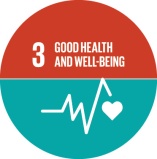Translating food safety research into policy action in Vietnam
- From
-
Published on
06.07.18
- Impact Area
-
Funders
Australia, Switzerland, The World Bank
 The agri-food sector, particularly livestock, plays an important role in the economy, livelihoods and nutritional security of Vietnamese people. Regular consumption of pork makes it an integral part of Vietnam’s diverse and rich culinary tradition. Typically eaten daily with steamed rice and vegetables, pork is an affordable as well as favourite protein source, accounting for 40% of household expenditure and 75% of the meat consumed. More than 83% of pork is produced by small-scale farmers and sold in traditional fresh-food markets, and 65% of rural households depend on pig farming for their livelihoods.
The agri-food sector, particularly livestock, plays an important role in the economy, livelihoods and nutritional security of Vietnamese people. Regular consumption of pork makes it an integral part of Vietnam’s diverse and rich culinary tradition. Typically eaten daily with steamed rice and vegetables, pork is an affordable as well as favourite protein source, accounting for 40% of household expenditure and 75% of the meat consumed. More than 83% of pork is produced by small-scale farmers and sold in traditional fresh-food markets, and 65% of rural households depend on pig farming for their livelihoods.
Rising urbanization and a growing middle class have driven changes in dietary patterns, leading to increased pork consumption. In recent years, the Vietnamese government has acknowledged scope for evidence-based decision making in reducing the prevalence of food-borne disease in traditional markets. Improved safety in the food supply chain has the potential not only to protect the health and welfare of poor livestock producers, sellers and consumers, but also to grow the economy through the increased competitiveness of Vietnam’s food products and the opening of premium markets. Conversely, food safety hazards— or perceptions thereof—impose a significant economic burden, impeding value chain development and exports. . . .
Related news
-

Australia partners with International Livestock Research Institute to upskill researchers from Africa and Asia
International Livestock Research Institute (ILRI)13.11.25-
Food security
-
Poverty reduction, livelihoods & jobs
Australia has joined forces with the International Livestock Research Institute (ILRI) to support th…
Read more -
-

A decade of academic and research partnership advances One Health in Vietnam
International Livestock Research Institute (ILRI)13.11.25-
Health
In northern Vietnam, Thai Nguyen province has become one of the most active hubs for…
Read more -
-

Next-gen rice lines top check varieties at 7.5 t/ha in ESA
International Rice Research Institute (IRRI)11.11.25-
Food security
MOROGORO, Tanzania (8 October 2025) — Elite rice lines are outperforming the current popular varie…
Read more -
